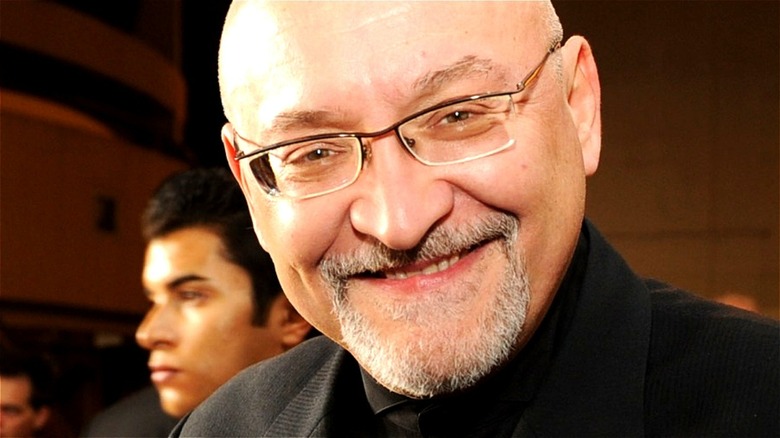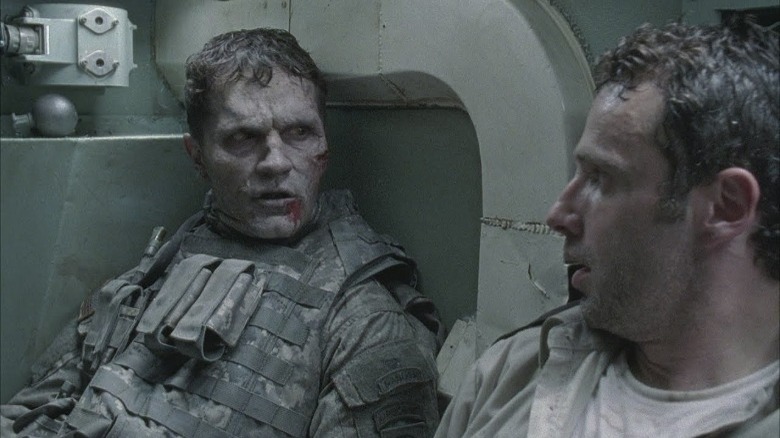How Frank Darabont's Departure Drastically Changed The Walking Dead
Way back in 2003, writer Robert Kirkman got his comic book series known as "The Walking Dead" off the ground. The Image Comics title followed the lives of several survivors — some good, some evil, and some in the gray area between — as they fight to stay alive in the zombie apocalypse. This premise, coupled with the artwork of Tony Moore and later Charlie Adlard, led to the cultivation of a massive fanbase as well as mainstream attention. Unsurprisingly, Hollywood wanted in on the action, so plans fell into place for a TV adaptation.
AMC got to work on a "Walking Dead" show by 2009, with Frank Darabont of "The Shawshank Redemption" and "The Green Mile" fame at the helm as showrunner. While attaching a name that big to the project looks like nothing but a positive on paper, in reality, it didn't pan out as anyone had anticipated. By the start of Season 2, Darabont had been fired from his position, resulting in years of courtroom battles between him and AMC. Nevertheless, "TWD" trudged on, though it became a far cry from the show that Darabont had initially envisioned.
Had AMC not relieved Frank Darabont of his duties, the weekly presentation of "The Walking Dead" would've been drastically different than what it is today. Here's how.
Darabont wanted make TWD like an anthology series
The "Walking Dead" we've all come to know follows a straightforward narrative structure. Every week, we see how our band of heroes is handling whatever challenges have presented themselves as of late and what their actions mean for the next episode. This serialized format isn't uncommon in television, but Frank Darabont didn't necessarily want to follow the crowd in this regard. Instead, he wanted to present long-running stories alongside shorter ones, treating "The Walking Dead" as something akin to an anthology series.
"I always had in mind to throw in a 'wild-card' episode every season, maybe as a season opener or closer," Darabont told Ain't It Cool in 2012, explaining that even though these narrative detours took audiences away from the "Walking Dead" plot, they'd tie-in by the time they concluded. He adds that trying this out would've been a bold move, but at the end of the day, he felt it could work. To him, these oddball episodes would've been a fun reward for the fans for their loyalty to the show.
Sam Witwer — the actor behind the walker Rick Grimes (Andrew Lincoln) encounters inside of a tank in Season 1 — shed some light onto one of these proposed stories, revealing that Darabont intended for him to take part in a tale that he described as "'Black Hawk Down,' but with zombies" (via Paranormal Pop Culture). It would've served as the inaugural episode of Season 2 and fleshed out the backstory of Witwer's tank zombie leading up to the fall of Atlanta during the early days of the outbreak.
"The Walking Dead" has achieved iconic status in the TV world, but would it have done so had Frank Darabont's anthology plan come to fruition? We'll never know.

